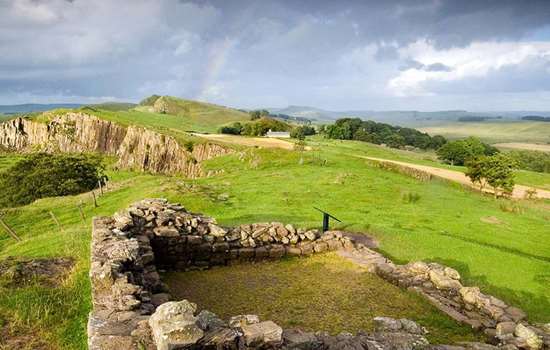Search Results
87 results for birdoswald roman fort - hadrian's wall
Page
Farming had been around in Britain for some 4000 years by the time of the Roman conquest, so much of the natural wildwood that once covered these islands had already been cleared. The landscape the Romans found was one of cultivated fields and pastures, scattered farmsteads and settlements, and surviving islands of managed woodland.
Page
The daily experiences of most people in Britain were eventually touched by its incorporation into the Roman Empire. But in the countryside, where most people lived, life continued to centre upon the enclosed world of the homestead and the grind of agricultural labour.
Page
Our collection relating to Hadrian's Wall gives us clues about what life was like for soldiers and civilians in Roman Britain. Use these objects at home or in the classroom to inspire cross-curricular learning and further your research.
Page
Find out how to book your next group day out to Housesteads Roman Fort. We offer a discount to groups of 11 or more paying visitors.

Property
Walltown Crags - Hadrian's Wall
One of the best places of all to see the Wall, dramatically snaking and diving along the crags of the Whin Sill.
Page
Rome's success was built on the organised and practical application of ideas long known to the ancient world, rather than on technological innovation. But the inhabitants of Roman Britain did display creativity in their art.
Page
The Roman road network was vital for transport and trade, and was one of the Romans’ most enduring legacies: it would remain the skeleton of communications in Britain until the 18th century.
Page
The Romans sought to equate their own gods with those of the local population. People worshipped these hybrid gods, together with ancient local deities and exotic new cults.
Page
The typical building of pre-Roman Britain was the timber and thatch roundhouse. The Romans introduced the idea of rectangular plans, which were more suitable for packing buildings closely together along streets in planned cities.
Page
The Romans introduced many new foods to Britain. Some people had access to professional medical care during the period, although most relied on herbal remedies.